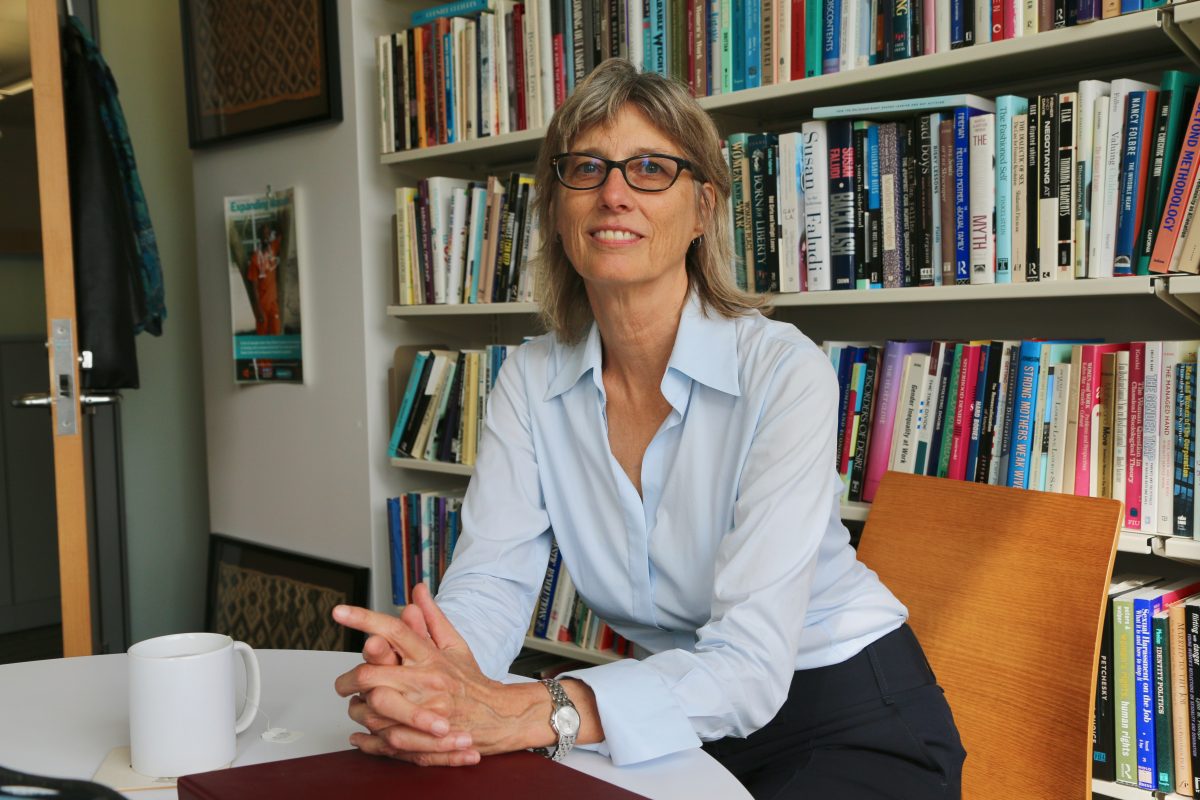Sociology is an academic discipline devoted to documenting and analyzing social oppression. This primary focus, Christine Williams says, is what drew her to the field.
Williams, a professor of sociology at The University of Texas at Austin, is an extremely prolific sociologist, especially in regard to her work on gender discrimination and sexual harassment in employment settings. Now, Williams has been chosen as the 2020 president of the American Sociological Association (ASA) and is eager to rally the country’s sociologists around this year’s annual meeting theme, inspired by her own research: Power, Inequality, and Resistance at Work.
“I am grateful to The University of Texas at Austin and my colleagues in the Department of Sociology who have enabled me to flourish as a scholar and a teacher,” Williams says. “I am happy to be the first sociologist to represent the University as ASA President.”
To learn more about Williams’ research and the outlook of her ASA presidency, we asked her the following:
What do you hope to accomplish in your new role as ASA president?
The ASA is dedicated to the production and dissemination of the highest quality sociological knowledge and cutting-edge research techniques. Its membership consists of research and teaching professionals, practitioners and students. The ASA is devoted to advancing sociology as a science and profession.
Professional associations play an increasingly important role in promoting diversity in the workplace. As president, I want to build on ASA’s ongoing efforts to provide a supportive and welcoming environment for new scholars, especially those from underrepresented groups.
One of my major tasks as ASA President is to organize the annual conference, which will be held in August 2020 in San Francisco. I’ve chosen my theme, “Power, Inequality, and Resistance at Work,” to showcase research on how people experience and resist economic domination, racial/ethnic and gender discrimination, and sexual harassment. I will also highlight efforts to cultivate hope for a better tomorrow.
What is your research focus?
I study gender, race and class inequality in a wide range of workplace settings. I’m currently studying gender inequality and diversity culture in the oil and gas industry. A previous book, Inside Toyland: Working, Shopping, and Social Inequality, exposes how the social inequalities of gender, race and class are embedded within consumer culture through an examination of low-wage retail work. Two other books focus on men and women in nontraditional (gender atypical) occupations, such as men in nursing and women in the U.S. Marine Corps. I have also studied sexuality, homophobia and sexual harassment in a wide variety of workplace settings.
Outside of becoming ASA president, what are you most proud to have accomplished at UT?
I have taught literally thousands of students during my time at UT. My proudest moments are watching them succeed. Many have gone on to successful professional careers, including medicine and law and academia. Just last week I received an email from an undergraduate student who was in my class 20 years ago, telling me about a book he had just read that he thought I would enjoy. In my career, I have supervised 25 Ph.D. students who are now leading researchers and professors around the country and the world. Several published their dissertations as books, including most recently, Caitlyn Collins’ Making Motherhood Work. This extensive network of Texas sociologists is mentoring the next generation of feminist scholars.
What do you hope students gain from your classes?
I believe in the power of the sociological imagination to illuminate real-life social problems. I expect my students to develop a deeper appreciation of how their own experiences, views, choices, and opportunities have been shaped by society. I also endeavor to give them the conceptual tools necessary to challenge patterns of social inequality.
Are there any questions you want to answer in the future or studies you hope to do?
Studying the oil and gas industry, I have become interested in the environmental movement and sustainability, and how corporations use women as spokespersons to sanitize their toxic practices. Thanks to my students, I have a never-ending set of new research questions on how gender, class, and racial inequalities are key to understanding a wide variety of contemporary concerns, from police violence, to legal cannabis, to sexual assault, to transgender politics.
